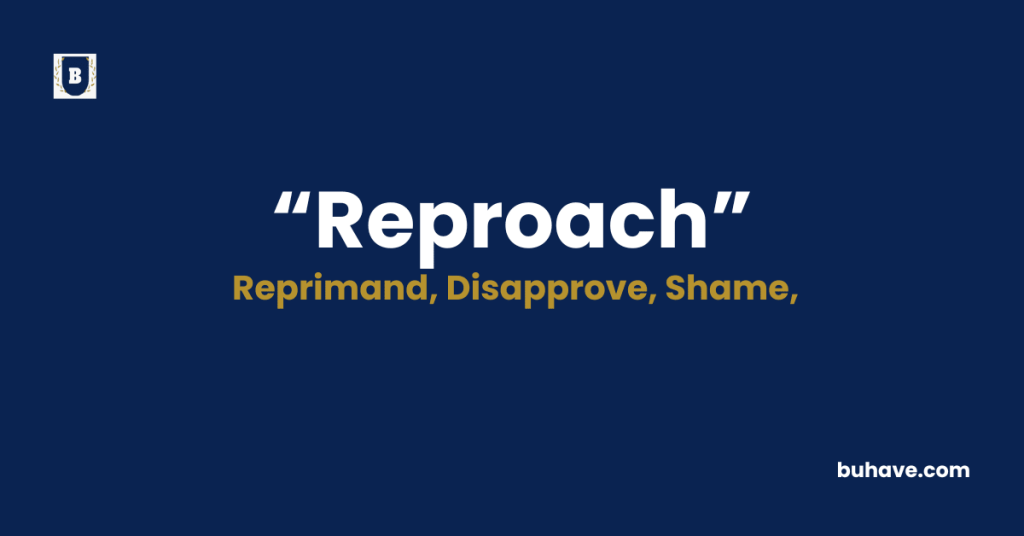The word Reproach (Noun) refers to expressing disappointment, disapproval, or criticism, often for a perceived fault or failure. In this guide, you’ll learn the full definition, synonyms, antonyms, etymology, and real-life examples of how to use Reproach correctly in sentences.
Reproach Explained in Depth
A complete and detailed guide to the word Reproach including meaning, definition, examples, etymology, synonyms, and antonyms.
Meanings of Reproach
Reproach means to express disapproval or disappointment in someone’s actions or behavior, often implying that they have fallen short of expectations or moral standards.
Definition
As a noun, reproach refers to criticism or blame directed at someone for doing something wrong or unacceptable. As a verb, it means to criticize someone, especially with the intent of making them aware of their fault or failure. Reproach can be conveyed through words, tone, or even a look. While it is not always harsh, it carries emotional weight, often linked to shame or regret. Parents may reproach children for dishonesty. A friend might reproach another for breaking trust. In some settings, such as literature or public speaking, reproach may be used to highlight societal failures or moral decline.
It’s different from harsh scolding or public condemnation reproach often reflects a personal or disappointed tone. When used carefully, it can serve as a gentle nudge toward reflection or accountability.
Etymology
The word “reproach” originates from the Old French term reproche, meaning “blame or censure.” This came from the Late Latin word reprobare, formed from the prefix re- (meaning “again” or “back”) and probare (to test or approve). Thus, the word initially conveyed the idea of being tested and found unworthy. It entered English around the 14th century and retained its meaning of rebuke or disapproval. Historically, reproach was frequently used in religious or moral contexts,
where it signified the disappointment of a community or authority figure. Over time, it expanded to include everyday use in personal relationships and social commentary. Though softer than outright condemnation, reproach still implies a strong emotional reaction to perceived wrongdoing.
Example Sentences
- She looked at him with quiet reproach after his thoughtless comment.
- He did not reproach her directly, but his disappointment was clear.
- The teacher’s tone carried a hint of reproach as she discussed the missed homework.
Reproach Synonyms
- Blame
- Criticism
- Disapproval
- Scolding
- Rebuke
- Censure
- Chiding
- Reprimand
- Disappointment
- Denunciation
Reproach Antonyms
- Praise
- Approval
- Compliment
- Recognition
- Honor
- Commendation
- Appreciation
- Admiration
- Respect
- Acceptance
FAQs about Reproach
Here’s a FAQ-style guide about the word “Reproach”
1. What does “reproach” mean?
It means to express disappointment or disapproval toward someone’s behavior or actions.
2. Is reproach always negative?
Mostly, yes. It suggests disappointment, though not always harsh or aggressive in tone.
3. Can someone reproach themselves?
Yes. Self-reproach occurs when someone blames themselves for a mistake or moral failing.
4. How is reproach different from scolding?
Reproach is often more subtle and emotional, while scolding is more direct and vocal.
5. Is reproach commonly used in daily language?
It is somewhat formal, yet still used in conversations, especially when expressing disappointment with care.

















